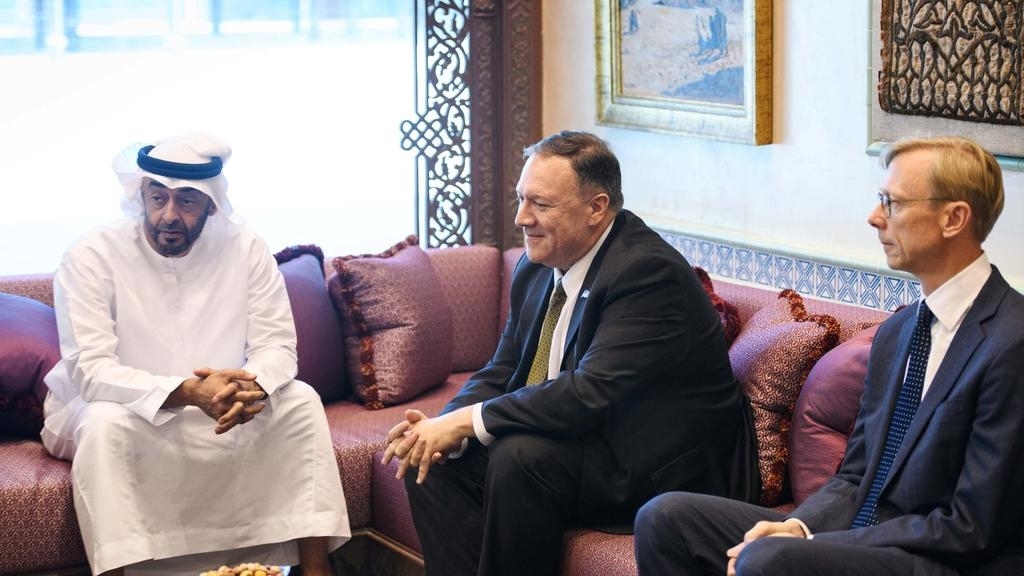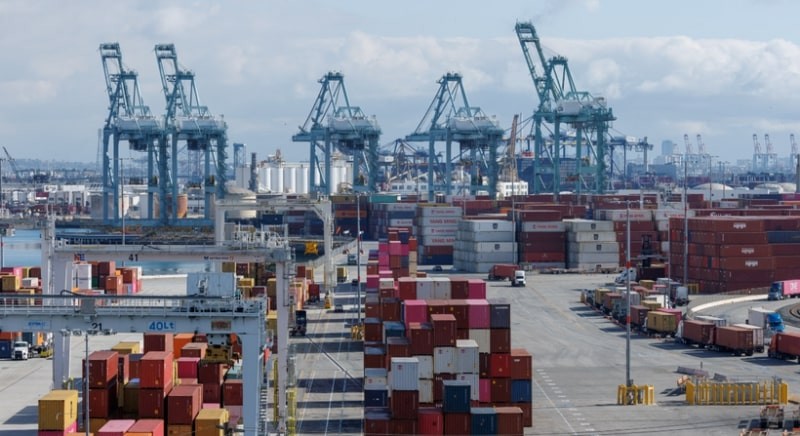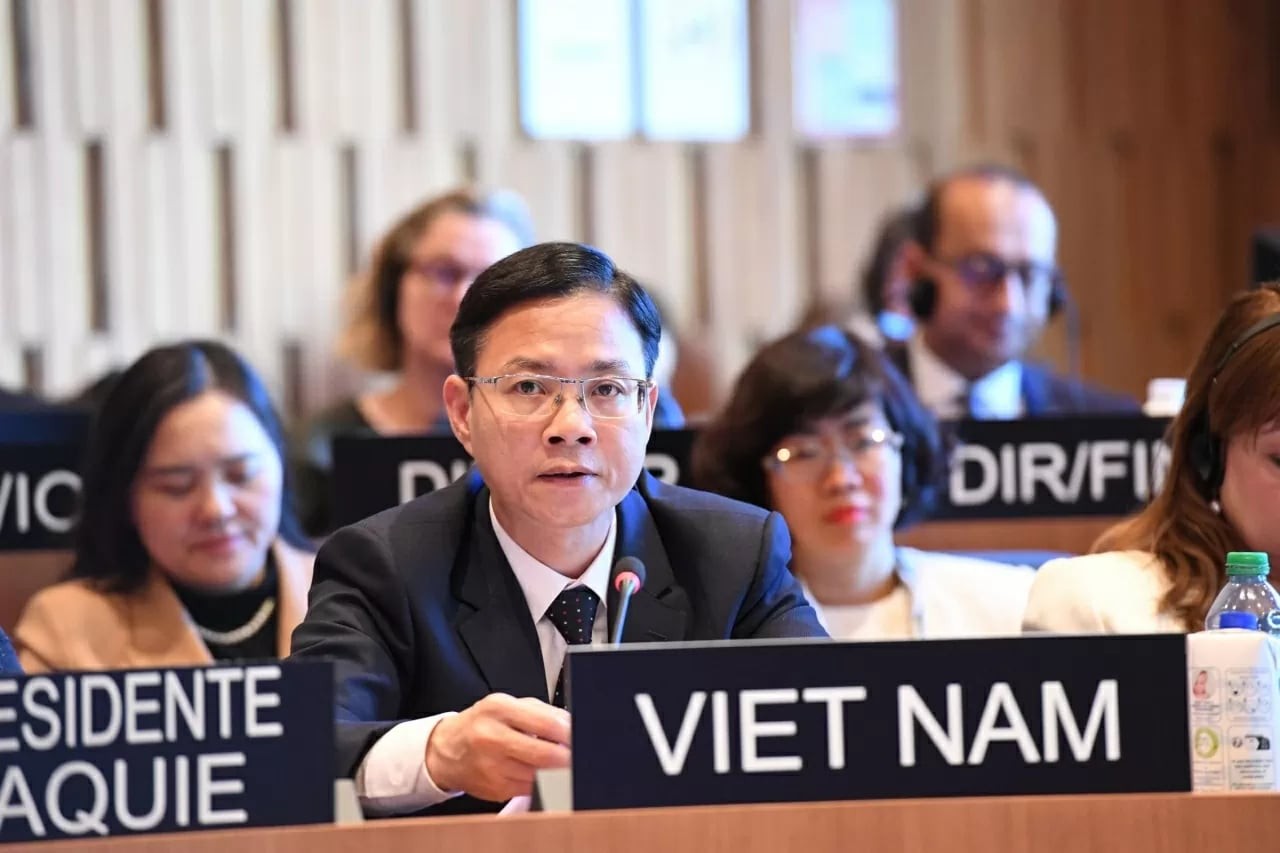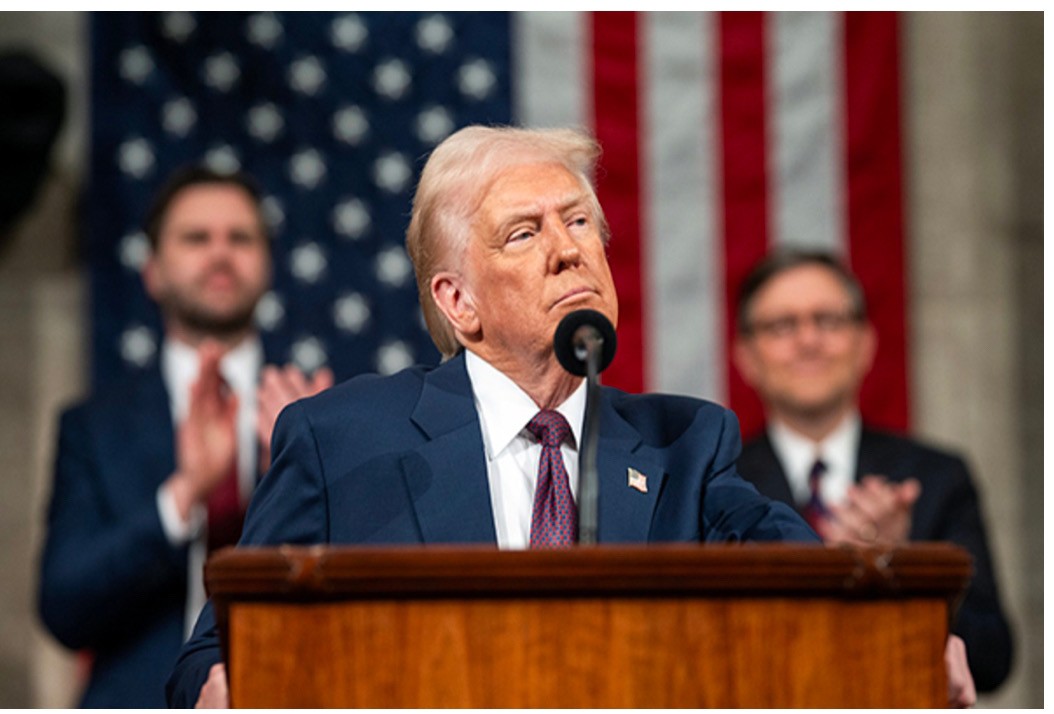US forms coalition as Iran threatens “all – out war” after Saudi oil plants attacks
The US on Thursday (September 19) affirmed to create a coalition to prevent conflicts from Iran as Iran had warned that an ‘all – out war” can occur after the attacks on Saudi Aramco’s oil facilities on September 14.

The US Secretary of State Mike Pompeo, US special representative on Iran Brian Hook and Abu Dhabi Crown Prince Mohammad bin Zayed al - Nahyan in a meeting on September 19 (photo: AFP)
The US announced it was forming a coalition on Thursday (September 19) after Iran had threaten to have a war following the Saudi oil field attacks on September 14.
Iran’s Foreign Minister Mohammed Javad Zarif had said “I am making a very serious statement that we don’t want war; we don’t want to engage in a military confrontation ... But we won’t blink to defend our territory”. However, he gave a caution that the US and its allies will step in an “all – out war” with Iran if they launch any attack on this country.
Hossein Dehghan, a senior advisor of Iranian Supreme Leader Ayatolla Ali Khamenei also stressed that “they (U.S. and Saudi Arabia) have realized that playing with the tail of a lion is highly dangerous and that if they take action against Iran at any time, they know there will be no tomorrow for them in the region”.
The Iran’s reaction came after the US President Donald Trump had asked the Treasury to “substantially increase sanctions” on Iran and will show further information of sanctions within 48 hours and continued accusing Iran on the Saudi oil attacks on Wednesday (September 18) following the Saudi Arabia’s presentation of the drone and missile’s fragments to prove the Iran’s involvement and labelled it as a ‘real test of global will”.
Saudi minister of state for foreign affairs Adel al – Jubeir even demonstrated the attacks were an “extension of the Iranian regime’s hostile and outlawed behavior” and urged other countries to “shoulder its responsibilities and take a firm stance towards Iran’s criminal behavior”.
He also posted on his Twitter “Complacency with the Iranian regime will only encourage it to commit more acts of terrorism and sabotage in our region and around the world”.
President Trump had warned over the options of war with Iran “there are many options. There’s the ultimate option and there are options that are a lot less than that. And we’ll see, I’m saying the ultimate option meaning go in — war”.
Nevertheless, the US Secretary of State Mike Pompeo had de – escalated words “We are here to build out a coalition aimed at achieving peace and a peaceful resolution. That’s my mission, that’s what President Trump certainly wants me to work to achieve and I hope that the Islamic Republic of Iran sees it that way”.
For the reason that the recent tension between the US, Saudi Arabia and Iran may cause conflict in the Gulf region, Russian Foreign Minister Sergei Lavrov called the Gulf countries to discuss to de – escalate the tension, according to Interfax news agency.
Despite the row of Iran and the US on the Saudi Aramco’s attacks and Pompeo expressed that this matter would be a remark of the UN General Assembly meeting, the US issued visas to Rouhani and Zarif to sit in the meeting, as Iranian UN mission spokesman Alizera Miryousefi said.
As in the Iranian Ministry of Foreign Affairs’ twitter, Zarif is arriving to New York for attending in the UN General Assembly meeting.
However, Iran believed the US’s condemnation was one of action on the US’s “maximum pressure”, imposed on Iran to make Iran have the new talks on the 2015 nuclear deals which Iran will only sit on the negotiation table when all sanctions are lifted.
Iranian Oil Minister Bijan Zangenesh considered “The United States is now using oil as a weapon; oil is not a weapon”.
Reuters ( Van Nguyen )
Recommended
 World
World
"Will continue offering our full support to Indian govt": US FBI Director after Pahalgam attack
 World
World
"Great Leader": JD Vance Lauds PM Modi During His India Visit
 World
World
Trump’s Tariff Pause: A Strategic Move from “The Art of the Deal”?
 World
World
"Indian Navy's participation in AIKEYME exercise matter of great happiness": Admiral Dinesh Kumar Tripathi
Popular article
 World
World
ASEAN and US Tariff Dilemma: Hybrid Approach to Global Trade Tensions
 World
World
Vietnam Affirms Its Active and Responsible Role at UNESCO
 World
World
US Imposes 125% Tariff on China, Pauses Tariffs for 90 Days on Over 75 Countries
 World
World



